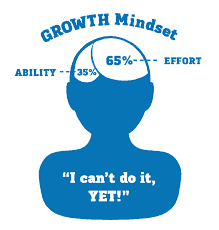Do you remember when you worked really hard and
you still couldn't make it? What did your coach (teacher, parents, any
adult figures) tell you? What was the
most effective way that you could do to encourage and keep engaging young
learners and athletes in their activities?
In 4th grade, I worked hard on math story
problems that had something to do with bananas and oranges. In spite of
my effort, this problem was so complicated for me and it never made sense. (Details in this link) My 4th grade teacher told me, "You don't have to
know it," after the third time I asked her about the same math question.
In 10th grade, I prepared the Beethoven's sonata
for my next piano lesson. I wanted to impress my teacher with what he
told me last time, composer's emotion. After my extra hard work, he said,
"You are not showing Beethoven's intention through this
phrase."
In my Junior year in college, I began to learn
swimming with the proper form. I even read a swimming book to improve my
arms' movement. At the next lesson, she
said, "You move your arms Awkwardly."
Notice how all of these teachers used
"YOU" in their comments. "You" statements often happen when
coaches are frustrated. They teach so hard but their learners don't
perform as well as they wish. Coaches
are desperate of their inability of control. It is unfortunate for
coaches to blame learners for their own frustration. As they make blame with
"You" comments, coaches are also making a distance from their
learners.
Also, "You" statements are the
"Fixed" mindset language that creates Fixed Mindset learners. Labeling their learners sets limitation among young learners then, soon
they stop working hard because they think it is their limit. Learners begin
to think that no matter how hard they work, they won't be enough.
I propose to use questioning to help learners
resilience.
What if my 4th grade teacher asked me, "Can
you tell me what you know so far?" Then, she could continue
with, "Well, this is what I think you are stuck on. What do you think?" Would I have
tried again instead of giving up?
What if my piano teacher asked me, "What
did you think you did well in this piece? How do you know?" Then, he could say, "I interpret that
part differently. Would you like to try
it this way?" Would I have thought that there might have been
different ways to make certain expressions?
What if my swimming coach asked me, "How
did you use your arms?" Then, she could say, "I have some
tips. Would you like to know?" Would I have been curious about
"another" trick other than my book?
Questioning gives learners their ownership.
They are the ones who make mistakes.
And they are the ones who find solutions, at least they would think they
are, with a proper guidance. The ownership empowers young learners and makes them resilient. They become to want to make more
mistakes. Because they believe mistakes
make them grow.
Also, questioning creates a two-way communication. Although coaches' authority is highly respected, learners
pay more attention to their own actions by answering coaches' questions.
In other words, they become more likely accountable on their performance.
The coaches must be the great navigators and
facilitators who make their learners believe in themselves with the building-relationship-languages that promote growth mindsets. While you are making learners believe in
themselves, learners are also believing in you as well. The growth mindsets are created by coaches and
their learners, together, on the same page.
In sports, spontaneous things happen and we
tend to react to it. But take one breath and make growth mindset
comments. "Wow, you did it!
What did you do differently?"
"Yikes, did you notice what went wrong?" If learners see their mistakes as learning
opportunities guided by a growth mindset coach, they will outperform over those
who keep a fixed mindset, according to the research by Carol Dweck.
Now, which phrase would you choose to say when you
see your learners make mistakes next time? "You are wrong. You are lazy!" or
"What do you think you have to do next?"

No comments:
Post a Comment